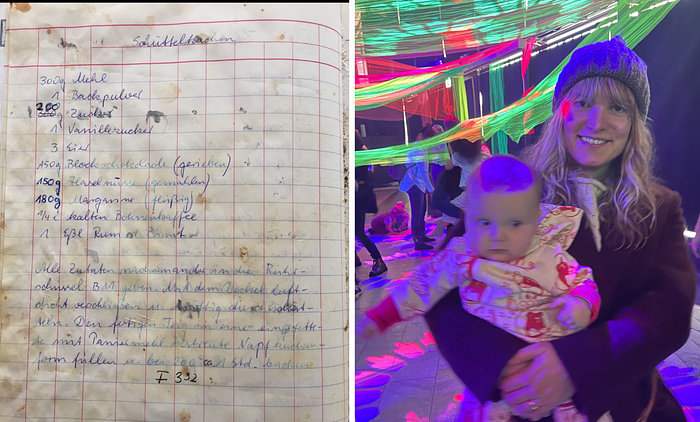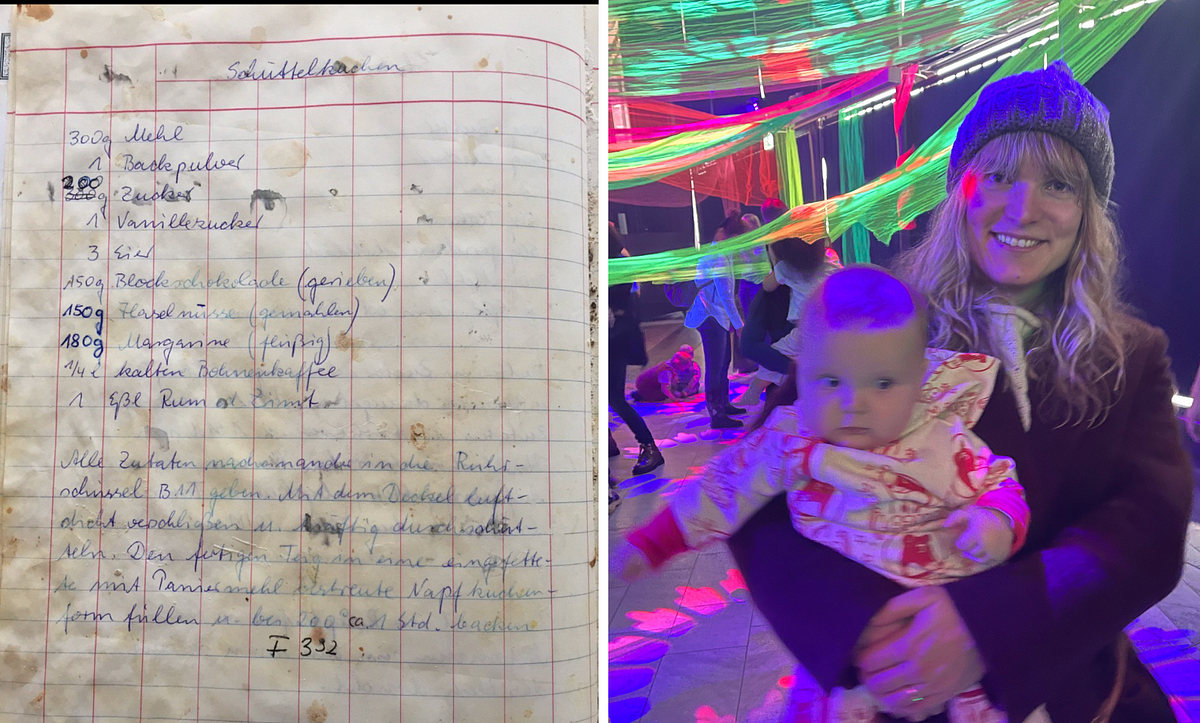I was fired from Spotify in the middle of my maternity leave back in January. I shared a lot about my emotions back then (as many people do). I saw fewer reports from everyone for a while after\n being fired.
So, here I am almost exactly a year after being fired unexpectedly.
And that's my starting point.

That's not surprising.
Not really. Although I believed that not being affected by maternity leave (technically) is a protected class, the waves of layoffs have shown that no one is safe. I should have known better. My team was a cost center, not actively contributing to revenue. The first red flag when layoffs occurred.
My role also changed between teams 3 times in a year, another thing companies tend to look at when deciding who to let go. Additionally, I was out for half a year on leave. So, clearly my role was not needed (a contractor had been doing my tasks while I was out).
Looking back, I shouldn't have been shocked. And I think there's some good advice here: Because most layoffs are not based on performance, companies go by other factors. Be honest with yourself about those. I took risks from the day I joined my most recent team.
Understand who is at highest risk - and find your next role
I used this knowledge to navigate the market for new roles. During interviews, I asked questions to help me figure out what the business role was like. I turned down roles at companies where I thought they might have surpassed their past (a quick Google search often reveals that kind of information). Additionally, I had successful recruiting managers ask about how they thought the role was important. Most understood, with my layoff history, that I cared about this.
** Of course, this still doesn't guarantee you won't be laid off again, it may reduce the risk. Illness cannot be predicted. Additionally, lower-risk roles come with other drawbacks. For example: you may just need to work harder, have a smaller team, or the company may be less mature.
Activate your true fans
Everyone is shouting to activate your network. And while you certainly can't post on LinkedIn that you've been laid off and are ready to work, it's unlikely to help you land your next role because there are so many great people currently on the market and posting.
What might help you land your next role is, connecting with people you already have relationships with. Former colleagues, friends from Uni, people you met at a conference, or those who engaged with your content in the past. My personal favorites are people who have hired you before.
With these people, you already have a foot in the door. I almost always introduce people I know personally for roles. I only very rarely do this for strangers on the internet. It worked for me when I was job hunting:
- People who knew me connected me with recruiting managers and got me interviews
- Myself, I reached out to design directors I knew to check out roles (and upcoming ones)
These two things are what got me through.
You can still be a bit picky
Losing a job takes a toll on your mental health. I've been spiraling with anxiety from rejections for a few months now. This didn't change when the interview process went well and I received an offer. Everything inside me was screaming not good enough and I had a hard time negotiating compensation with the confidence I had used to have.
Additionally, I wanted to take the first best offer, even though it was a big lowball and probably not the right fit for me to work. Luckily, my husband spoke some sense into me and I ultimately chose a much better role and negotiated a better compensation. But you might not have my husband. So, repeat after me:
- I deserve this offer.
- I deserve fair compensation for this job.
- Being laid off doesn't make me less attractive.
- Being laid off doesn't mean I have to perform any job in my way (yet).
- I am enough.
- Being laid off doesn't mean I'm not good at what I do.
- Om Hare om (throw one in there, it helps).
It will hit you hard. Then, it will keep hitting you.
This is true for me and for most people I know who have been affected by layoffs. It's a bit of a grieving process. First, you might be in shock. Then, you'll feel numb. Then, you'll get angry (my favorite!), and then you'll slowly start to accept your new reality and feel a little better each day.
But the bad feelings will keep hitting.
Every time you get a job rejection email. Every time you get ghosted by someone you reached out to. Every time you need to pay a bill. Every time you see an ad update from colleagues who weren't laid off. You'll ask yourself " Why me? ". You'll wonder. You'll feel all kinds of unfriendly feelings.
Here's what helped me:
- Taking a little break from LinkedIn. You can use it to job hunt but don't let it ruin the app. Definitely stay away from platforms like doomscrolling.
- Look inward. You are more than your job. What else makes you, you? Do more of that. I got back to reading, cooking, I shifted my exercise habits.
- Educate yourself. Honestly, I felt much better when I read about economics, capitalism, and history. Not that I've never done that before, but it served as a reminder that we truly live in a macroeconomic system and how it operates. PS: Eat the rich, always.
- Consider freelancing. I wasn't ready to trust a company right away and put all my eggs in one employer's basket. So, I took on some contract jobs to remind myself of what I like and what I'm really good at in my work.
- Once you find a new job, stay calm. I tend to give my all to a company and that's one of the things I like least about myself. I get excited about the opportunities, my new colleagues, and what the role could shape into. That was mostly what I lost when I was laid off. All those opportunities lost. With my next role, I played it a bit more emotionally fun. This made it easier for me to get into it and be more honest, perhaps making me more successful in it.
So where am I now, a year after being laid off?
I'm actually quite okay.
I landed an offer that's a perfect fit for me. I have a team I care about and colleagues who are killing it in their work. I have a great boss, who feels like a human and has been honest with me. I've achieved more in the past 9 months than I ever did in my previous job. I've developed a range of new skills, especially as a leader.
For me, being laid off is a good thing in terms of career acceleration. I still want to avoid it. Why? Because even if my career gets a boost, Nicole, me, the person, has taken a major hit that I may not recover from for years. I have to spend more time building my confidence, disconnecting from work, and fighting my final stage of capitalism personal battle I used to do before. And I'm still exhausted.
Here's what I want you to take away from this article. No matter how well you do after being laid off, you'll need a long time to recover. As a person, not as a worker.
Take care of yourself, above all.
The week I was laid off, I recorded this episode (RAW) for my podcast, New Content: I was laid off.
Nicole is a potential content design client and the host of the new content team. She lives in Sweden, where she writes poetry and chases her 1-year-old around the clover field. Website. Twitter.
